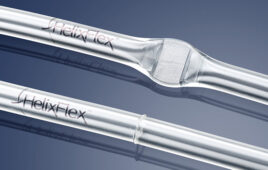
Photo credit: https://commons.wikimedia.org/wiki/File:Nicoderm.JPG
According to Lux Research, smart packaging, apps, telemedicine, and new drug-delivery technologies offer the best chance of raising medication adherence as the industry targets savings worth hundreds of billions of dollars from the failure of people to take their medications regularly.
The smart drug-delivery systems emerged overall winners among medication adherence monitoring technologies across the four major drug adherence stakeholders—patients, physicians, pharma, and payers—in a ranking by Lux Research. Based on 13 criteria including accuracy, actionability, and tampering prevention, smart drug-delivery methods scored 4.3 out of a maximum five inusability and 3.3 in impact, reflecting the best balance.
“User-friendly interfaces combined with effective technical capabilities are both required for addressing this market which will continue to grow due to population aging and epidemiology trends,” said Milos Todorovic, Lux Research Analyst and lead author of the report titled, “From Aging in Place to Clinical Trials: Lowering Health Care Costs with Medication Adherence.”
In the U.S. market alone, an estimated $290 billion could be saved if more people took prescribed drugs at the right time. The savings come from reduced progression of diseases, lower hospitalization and emergency room charges, and also reduced cost of clinical trials.
“Seamless integration into objects people use on a regular basis would go a long way toward increasing the utilization of the technology and reducing the social stigma that comes with continuous monitoring,” he added.
Lux Research analysts evaluated medication adherence technologies on 13 different criteria and ranked them on impact and usability. Among their findings:
- Potential to halve cost of clinical trials. On account of non-adherence by patients, clinical trials need to enroll thrice the number of participants actually required. This raises costs and adds to commercialization delays. It is estimated that better medication adherence technologies halve costs of a clinical trial, estimated at up to $100 million today.
- Smart packaging tops in impact. Patients favor smart packaging solutions for medication adherence, ahead of telemedicine, apps and smart delivery technologies. This places smart packaging—a range of technologies that can record use of pillboxes or measure volume of medications—at the top in impact and likely the best choice for greater patient adoption.
- Pharma favors physiological monitoring. Unlike patients, drugmakers back physiological monitoring solutions. This is because the technology goes beyond medication adherence monitoring and gives drugmakers the ability to track drug impact, a critical value addition in clinical trials.
The report, titled “From Aging in Place to Clinical Trials: Lowering Health Care Costs with Medication Adherence,” is part of the Lux Research Digital Health and Wellness Intelligence service.
Follow us on Twitter and Facebook for updates on the latest pharmaceutical and biopharmaceutical manufacturing news!




